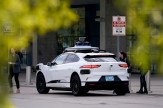How clean is the air in your neighborhood? This new Northeastern project aims to find out
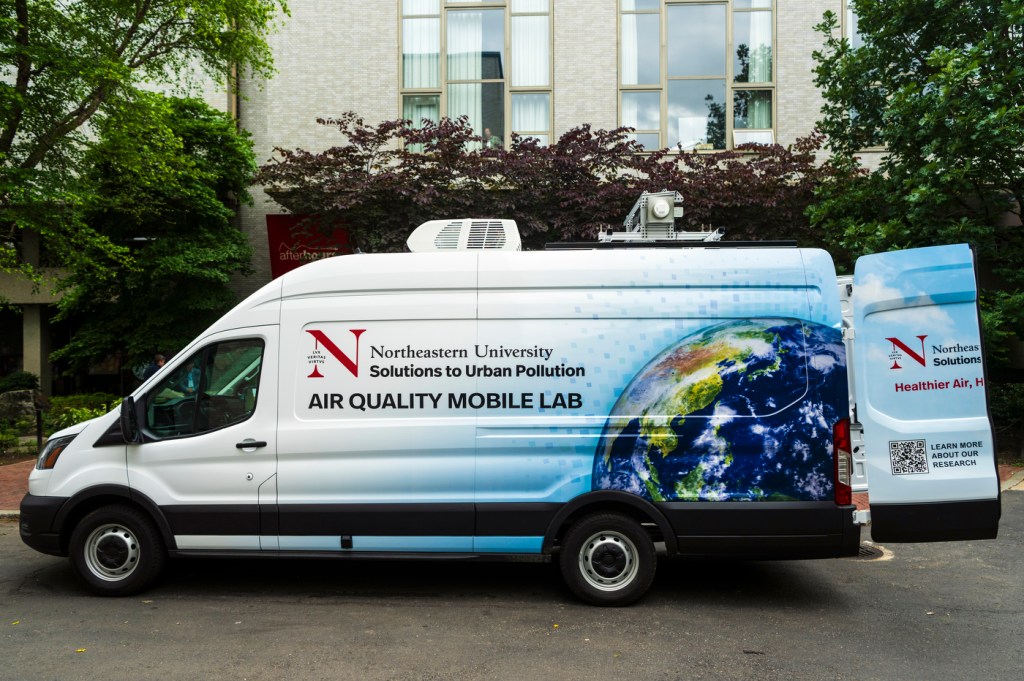
All neighborhoods are not created equal when it comes to air quality.
Power plants, idling traffic, diesel trucks shipping goods and even the corner restaurant create different pollution signatures for different locations within cities and towns.
This summer, researchers from Northeastern University are embarking on a multi-year quest to come up with block-by-block air quality insights in Boston-area municipalities.
The members of the interdisciplinary impact engine, known as iSUPER, will install more than 100 stationary pollution sensors in Brookline and Chelsea, and also explore Greater Boston streets in a van outfitted with monitoring equipment to detect a greater variety of pollutants on a sub-neighborhood level.
“Cities and towns have been making air pollution control decisions based on a few limited monitoring stations and regional averages,” says Yang Zhang, a Northeastern professor heading the iSUPER team.
“Our focus is identifying hyperlocal hotspots, eventually in real time, to support strategies to reduce it or remove it,” she says.

“I just feel we have this opportunity to do so much better in this area we know is critical for public health,” says team member and Northeastern assistant professor Amy Mueller, who is working with municipal officials and community groups to identify air quality concerns.
So far the iSUPER team has piloted the installation of eight of the solar-powered sensors in Brookline, Chelsea and at Massachusetts Department of Environmental Protection (DEP) reference stations in the Greater Boson area.
Candidate locations for the rest of the sensor fleet are being identified through a collaborative process with municipal officials and community partners.
Team members will also hit the road in the Greater Boston area in a white van wrapped in the university logo. The vehicle is equipped with research-grade air quality instruments that can measure ultrafine particles and other types of pollution that stationary sensors cannot detect.
“We plan to drive the vehicle in busy streets and several neighborhoods 10 to 20 times a day to better understand how things vary over time, an important thing for people to know in making decisions about their own activities,” Zhang says.
The van, outfitted by a company run by Northeastern alumnus John Wilbur, arrived June 20, in time to study air quality impacts of the fireworks during the upcoming holiday.
“July 4 is one national holiday I don’t want to miss because firework emissions contribute a lot to fine particulate concentrations (in the air),” Zhang says. “Oftentimes you see peak measurements three to five times higher than average.”
High levels of air pollution most affect children, the elderly and low-income individuals, causing an estimated 7 million premature deaths around the globe each year, according to the World Health Organization.
Air pollution “increases the risk of respiratory infections, heart disease and lung cancer,” WHO says, adding that fine particulate matter that penetrates deep into lung passageways is most closely associated with “excessive premature mortality.”
Mueller says the plan is for the iSUPER project to last at least five years, with the next activity after sensor installation being establishment of a data portal where communities can access and explore air quality measurements from the stationary sensors and mobile lab.
Figuring out how to convert the raw data into insightful information “is a big part of this project,” Mueller says. “Lots of times what we want to know isn’t just the measurement but also what it implies—what was the source? How frequently does this affect people? And most importantly—what might we be able to do to change things?”
The impact engine team currently consists of 13 faculty members in a variety of disciplines, one staff member, two research technicians, one newly hired co-op student who will work with the town of Brookline, and 10 graduate students.
The team will grow with four new faculty members, three new staff members, several postdoctoral researchers, and 10 more graduate students in the coming year, Zhang says.
Erin Chute Gallentine, Brookline’s commissioner of public works, says that the partnership with Northeastern will allow the town to try new approaches to air quality technology, practices and management.
“It’s an exciting opportunity to understand air quality and impacts of air quality not only in Brookline but throughout the region,” she says.
Zhang says the plan is to eventually expand the iSUPER project—short for Intelligent Solutions to Urban Pollution for Equity and Resilience—to additional locations.
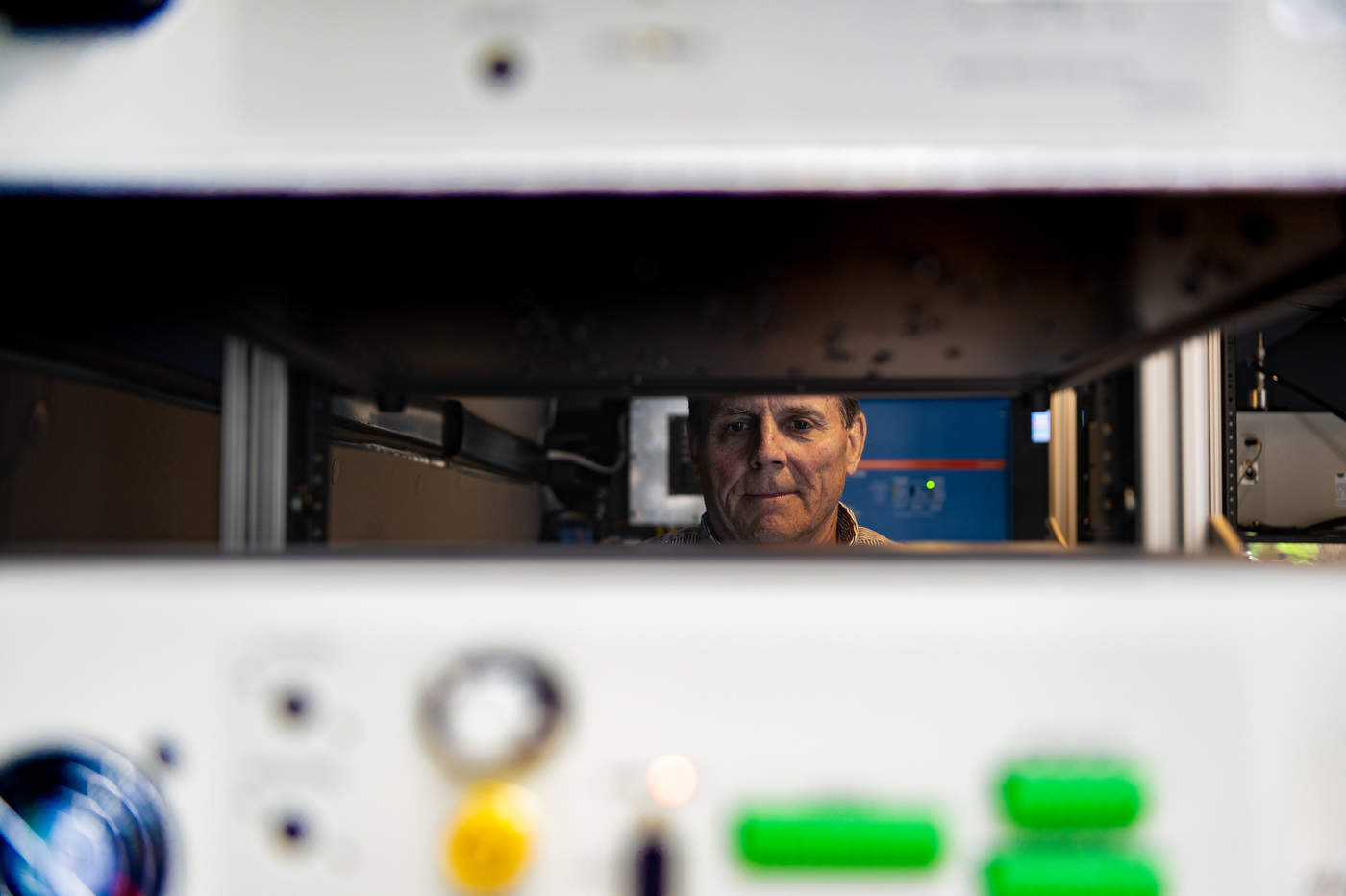
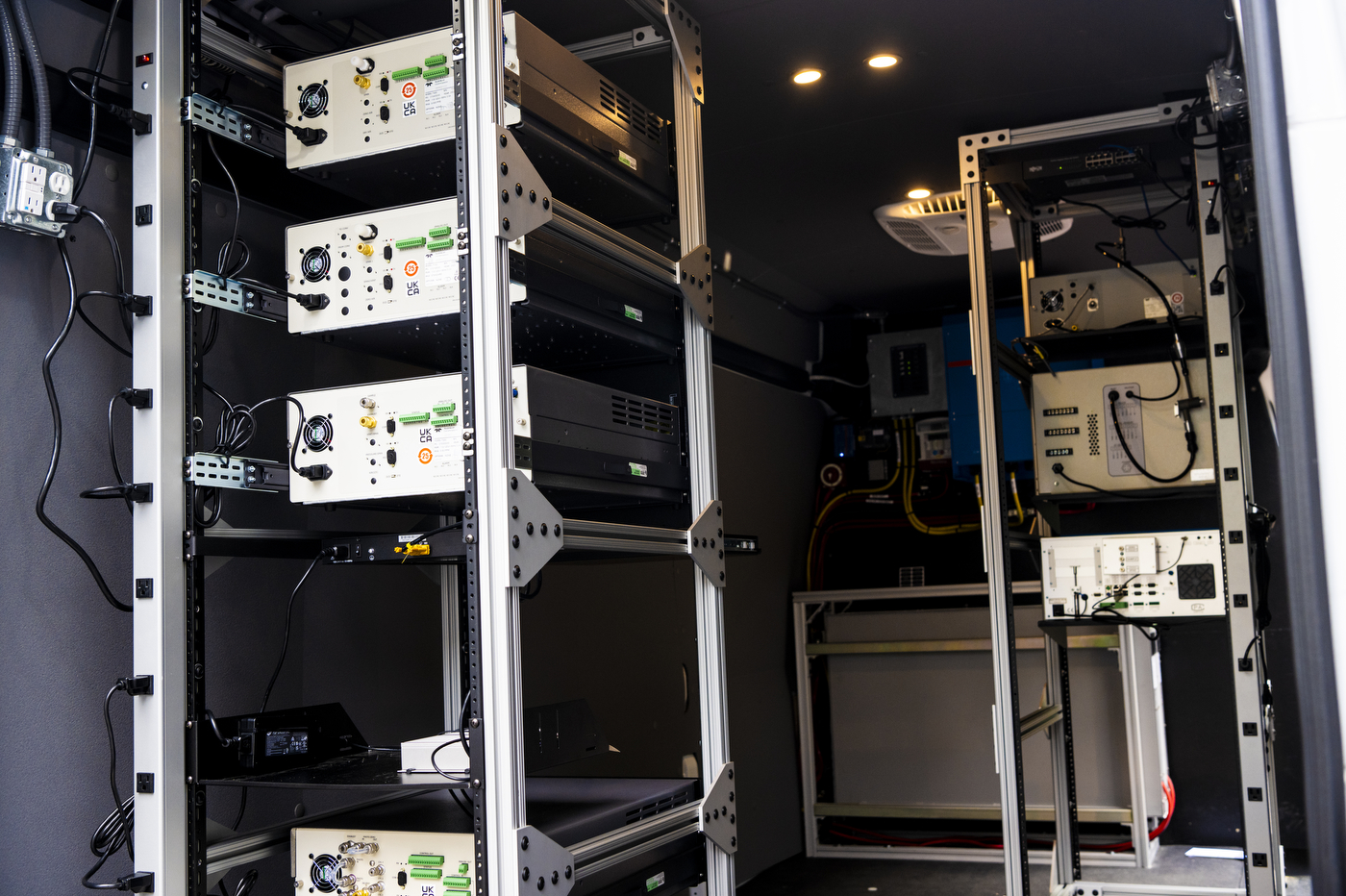
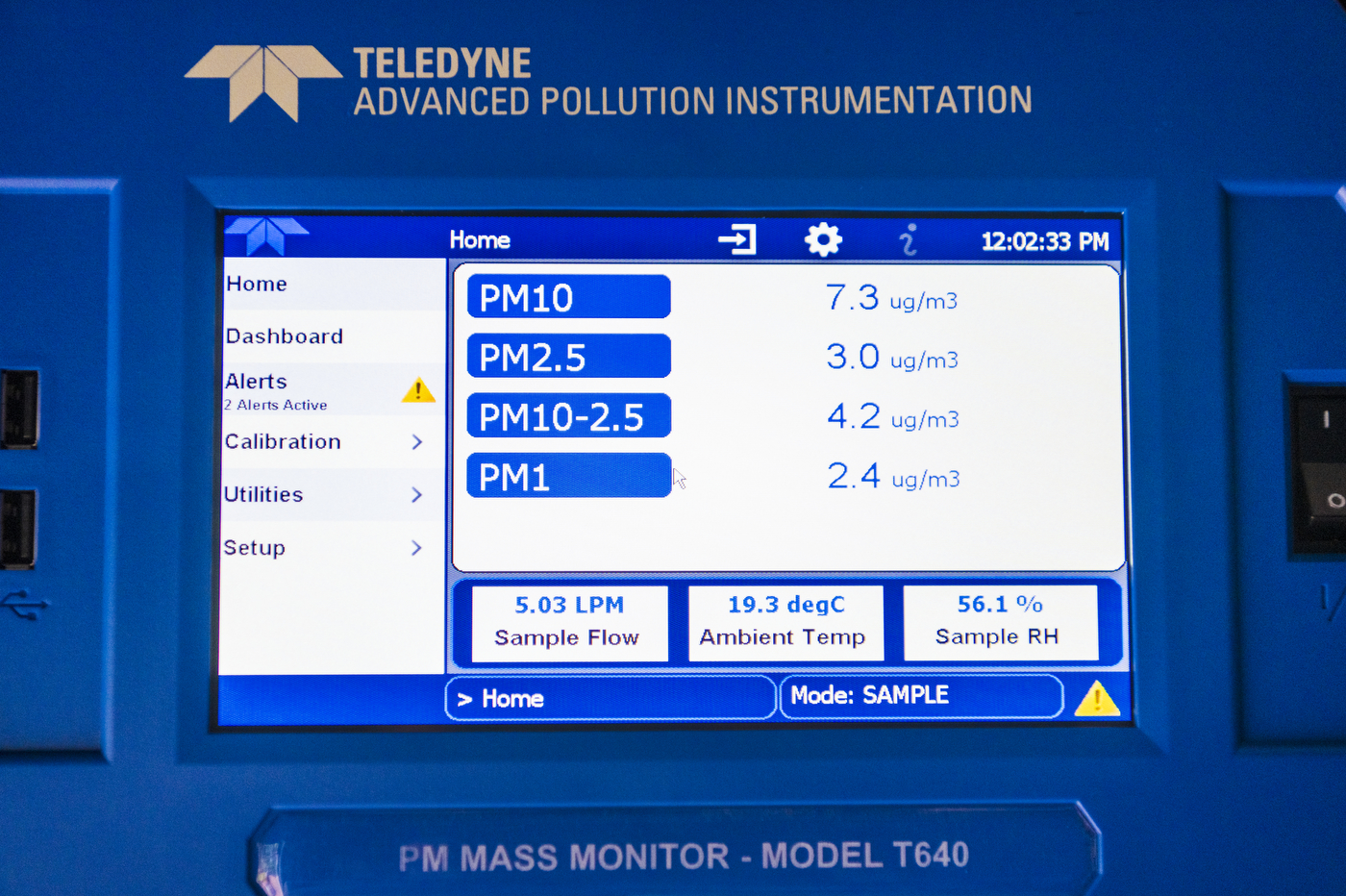
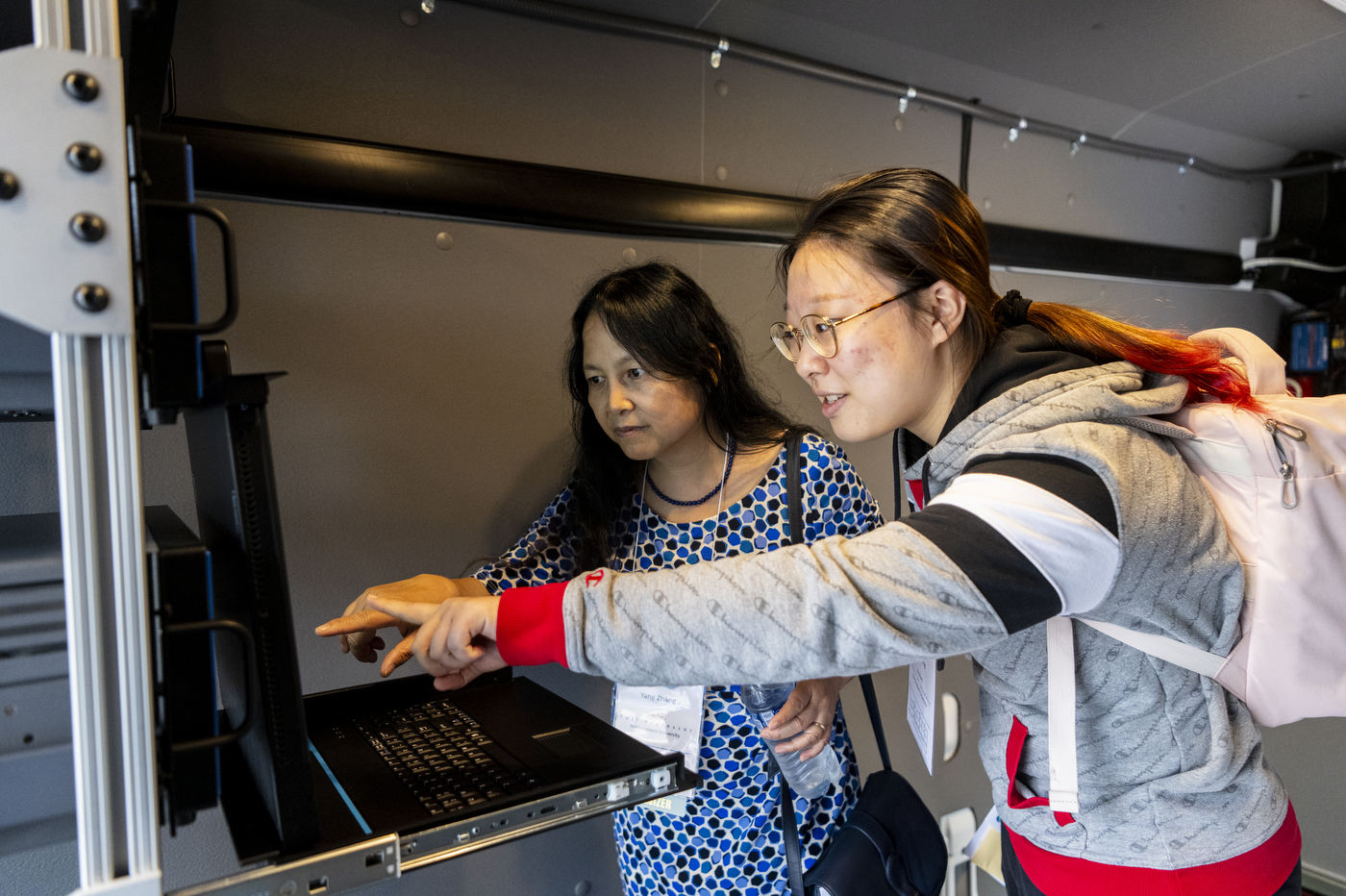
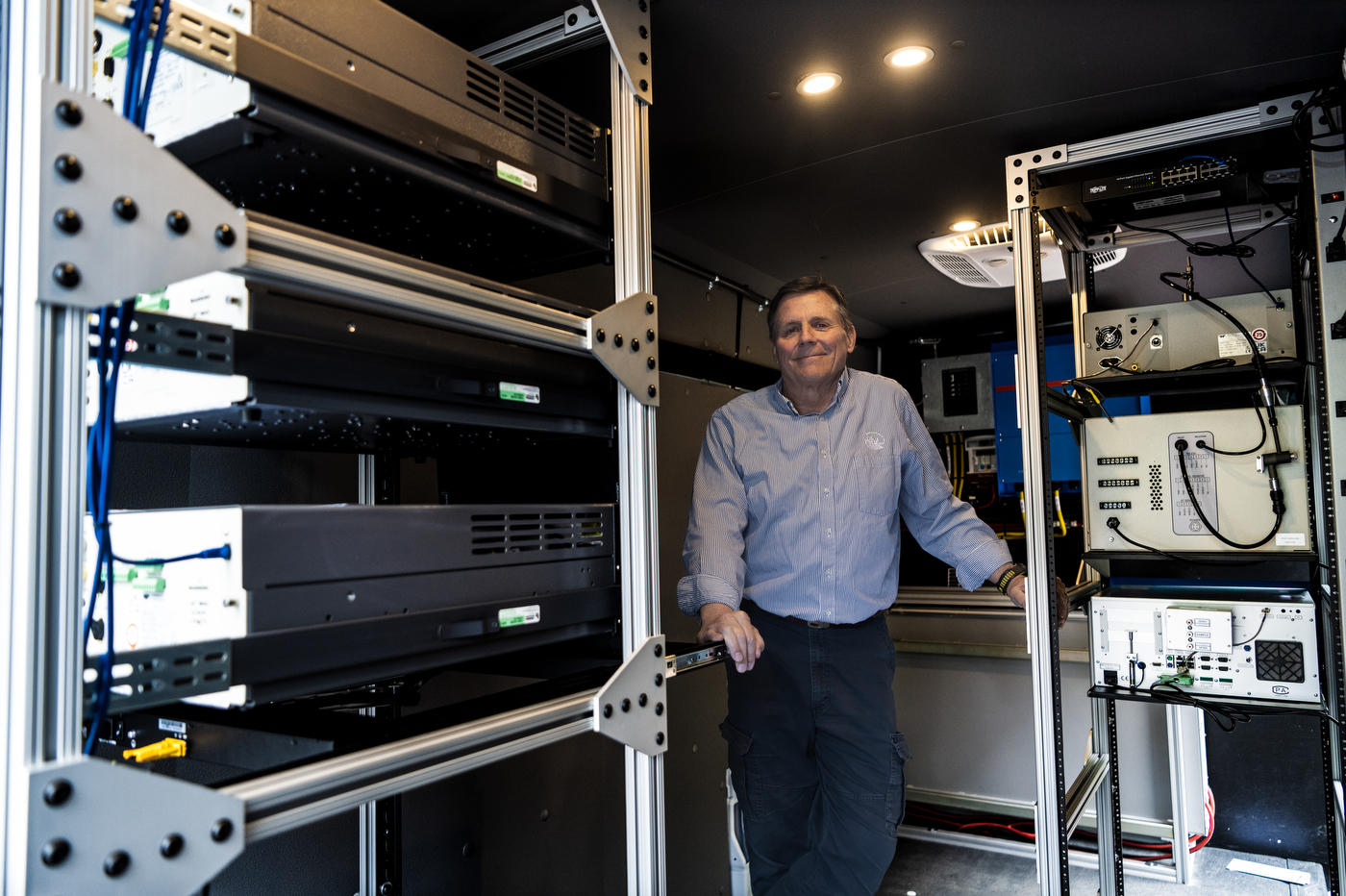
“We are building partnerships with cities and towns in the Greater Boston area,” Zhang says, adding that the “lab in a van” is not restricted to Brookline and Chelsea.
The metal unit on the van’s roof is an isokinetic sampler that sends air samples to boxes within the van that measure everything from particulate matter to carbon dioxide, ozone, methane and other chemical compounds, says Wilbur of The J.J. Wilbur Co. in New Hampshire.
The DEP says Suffolk County, which includes Boston, Chelsea, Revere and Winthrop, has the highest concentrations of the fine particulate matter pollutants that turn the air hazy of all the state’s counties.
The Clean Air Act of 1970 requires states to have a network of air monitoring stations. Massachusetts has more than 20, but Zhang says they don’t tell the whole picture.
“Boston area air quality may seem to be in compliance with EPA air quality standards, but specific neighborhoods and communities may have much higher air pollution than average,” Zhang says.
I just feel we have this opportunity to do so much better in this area we know is critical for public health.
Amy Mueller, assistant professor and vice chair for graduate studies, civil and environmental engineering
A neighborhood downwind of a power plant or major transportation hub, for instance, might have higher levels of nitrogen oxide and sulfur dioxide than other locations within a city, she says.
Even restaurant ventilation systems can affect local air quality by particles and volatile organic compounds, especially from cooking meat, Zhang says.
“Recent studies show that air pollution levels could vary by five to eight times across a city block,” she says.
“There’s a fundamental lack of hyperlocal data for city level decisions,” Zhang says. “Our goal for the impact engine is to address those key gaps in understanding and build tools to help us integrate air quality into all city design processes.”
Mueller says the information could help with city planning on multiple levels.
“What are the impacts when we redesign our roads to add bike or bus or dedicated turning lanes? What are the impacts of adding green spaces?” she says. “How do we think about air quality impacts of new (especially very tall) buildings that can create urban canyons in the city?”
Cynthia McCormick Hibbert is a Northeastern Global News reporter. Email her at c.hibbert@northeastern.edu or contact her on Twitter @HibbertCynthia.



